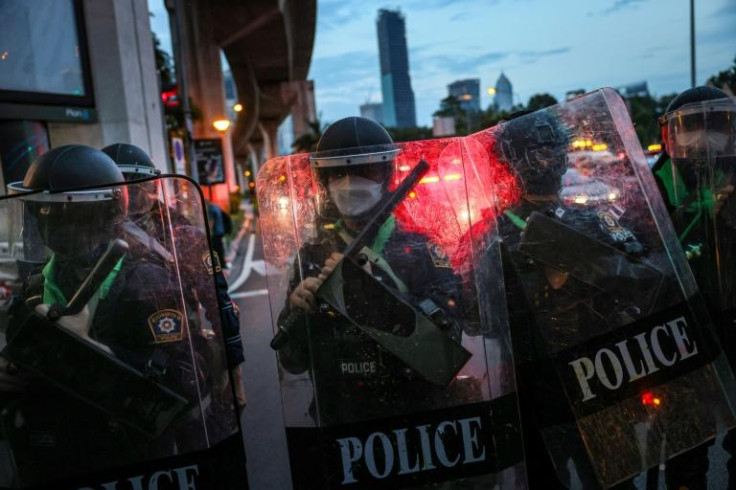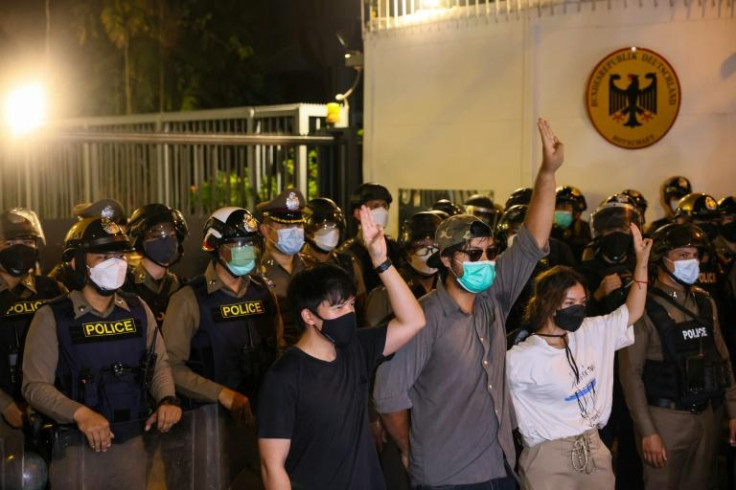Thai protesters call for royal reforms after court ruling
Police briefly clashed with some demonstrators, firing rubber bullets which hit at least one protester who was bleeding from his chest
Hundreds of protesters rallied in Bangkok on Sunday against a decision by a top court that ruled calling for royal reforms amounted to a bid to overthrow Thailand's ultra-powerful monarchy.
The Constitutional Court -- which critics have long said is politicised -- announced Wednesday that three prominent protest leaders had made speeches that "aim to overthrow the constitutional monarchy".
While the court's decision does not result in criminal penalties for the protest leaders, observers say the ruling could shrink an already narrow space for activists campaigning for reform of the monarchy.

Defying a ban on gatherings, hundreds of protesters assembled in Bangkok's main shopping district to rail against the decision, holding signs that said they do not want an absolute monarchy.
"We are not overthrowing this country. The reform is to make it better," shouted protest leader Thatchapong Kaedam, as demonstrators waved placards that said "reform does not equal overthrow".
"The Constitutional Court is seizing power from the people," he said.

Protesters flung effigies of the Constitutional Court's judges off a bridge and later burned them, while a small group of saffron-robed monks flashed a three-fingered salute for democracy.
Police briefly clashed with some demonstrators, firing rubber bullets which hit at least one protester who was bleeding from his chest, according to an AFP reporter on the ground. The injured man was rushed into an ambulance.
The city's Erawan Emergency Centre said at least two people were injured, though no details were given about their condition.
Earlier in the day, police had warned rallygoers against gathering.
"We want the public to focus on how to use their rights and freedoms but not violate laws which were ruled by the Constitutional Court," said Bangkok police spokesman Jirasant Kaewsangake.
By nightfall, protesters had marched to the German embassy -- a commentary on the king's frequent stays in the European country.
They submitted a letter to the embassy expressing concerns about a return to absolutism, and the rally dispersed soon after.
King Maha Vajiralongkorn flew to the country this week, according to German media -- his first trip abroad in over a year.
Thailand has been a constitutional monarchy since the end of absolute royal rule in 1932, but democracy has been punctuated by regular military coups, most recently in 2014.
The controversial call for royal reforms sent a lightning bolt through Thai society, which has long regarded the king as sacrosanct.
Any criticism of the royal family opens a person up to criminal prosecution under lese majeste laws.
Tens of thousands thronged the streets at the height of the demonstrations but now scores of protesters and their leaders are facing multiple criminal charges including royal defamation.
Copyright AFP. All rights reserved.
This article is copyrighted by International Business Times, the business news leader






